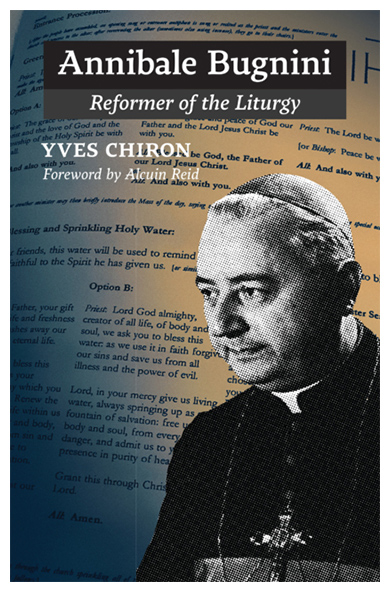
Jeg kjøpte denne boka for en måneds tid siden – den er skrevet av Yves Chiron og utgitt på fransk i 2016, utgitt på engelsk mot slutten av fjoråret – og jeg har nå lest den ferdig. Boka var ganske interessant, men den sa mer om liturgiarbeidet før og etter konsilet enn den gjorde om Bugnini – men det er nok riktig at det Bugnini gjorde er viktigere enn hans person. Man kan lese en lang anmeldelse av boka på Catholic World Report.
Jeg la spesielt merke til et sitat på s. 94, der det viser seg at erkebiskop Lefebvre var enda mer positiv til forandringer og bruk av morsmålet i den første del av messen enn jeg hadde trodd:
The final text of the Constitution on the Liturgy was voted in by the near-unanimity of the Council Fathers. Even Archbishop Lefebvre, who was to become a determined opponent of the Second Vatican Council and the great defender of the «perennial Mass,» voted for the text. Although he soon regretted «unforeseen and infelicitous results,» at the time he recognized that a reform of the liturgy was necessary, including in the Mass:
There was something to reform and to rediscover. Clearly, the first part of the Mass, which is intended to instruct the faithful and for them to express their faith, needed to reach those ends in a clearer and so to speak more intelligible manner. In my humble opinion, two such reforms seemed useful: first the rites of that first part and also a few translations into the vernacular.
The priest coming nearer to the faithful; communicating with them; praying and singing with them and therefore standing at the pulpit; saying the Collect, the Epistle, and the Gospel in their language; the priest singing in the divine traditional melodies the Kyrie, the Gloria, the creed with the faithful: these are so many good reforms that give back to that part of the Mass its true finality. 26
(Footnote 26. Marcel Lefebvre, «Perspectives conciliaires entre la 3e et la 4e session,» Itinéraires 95 (July—August 1965): 78-79.)
